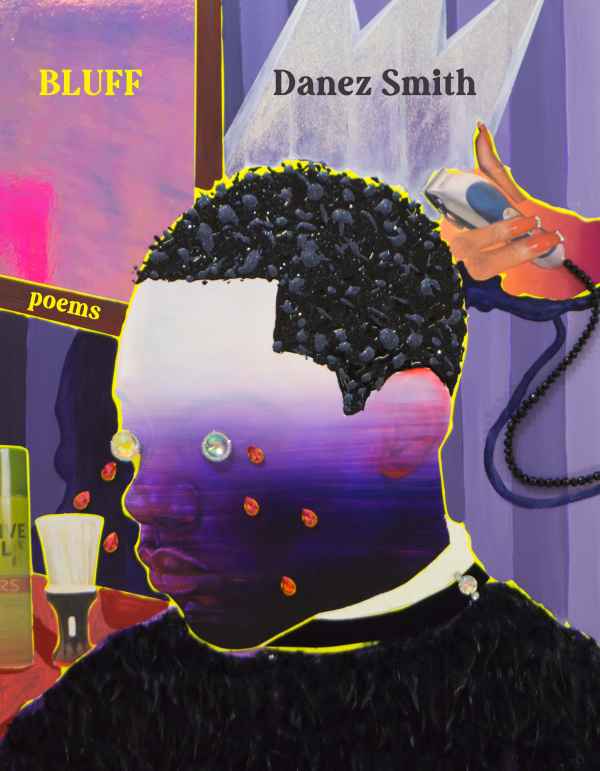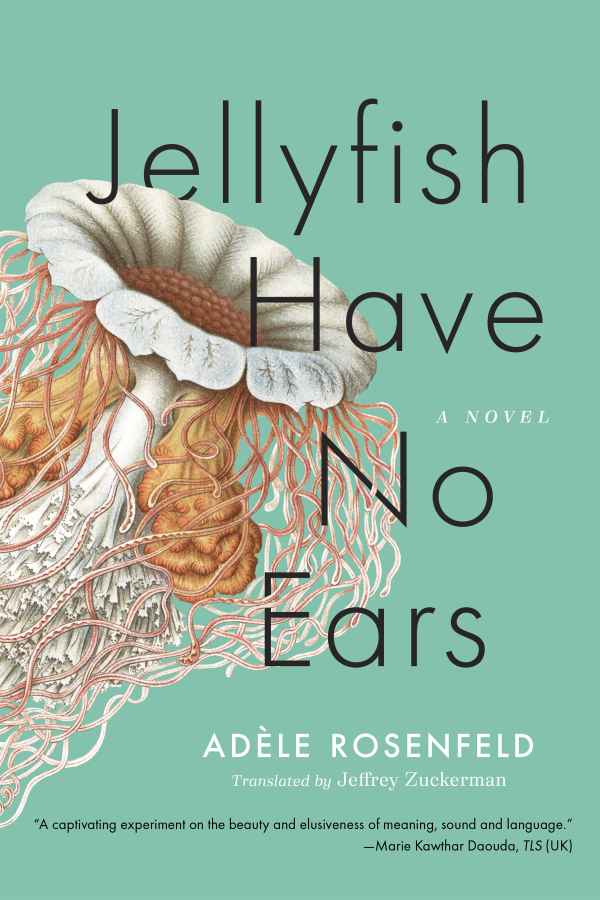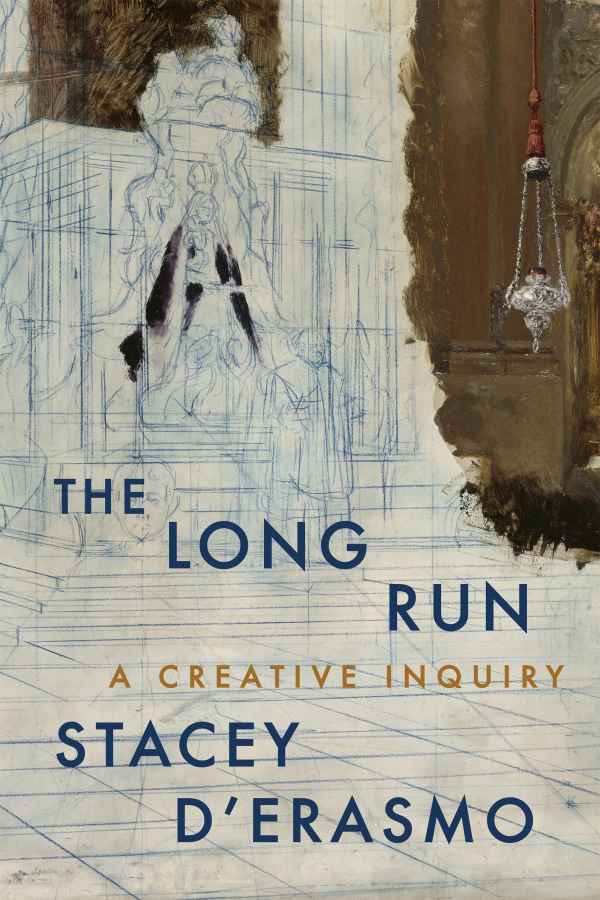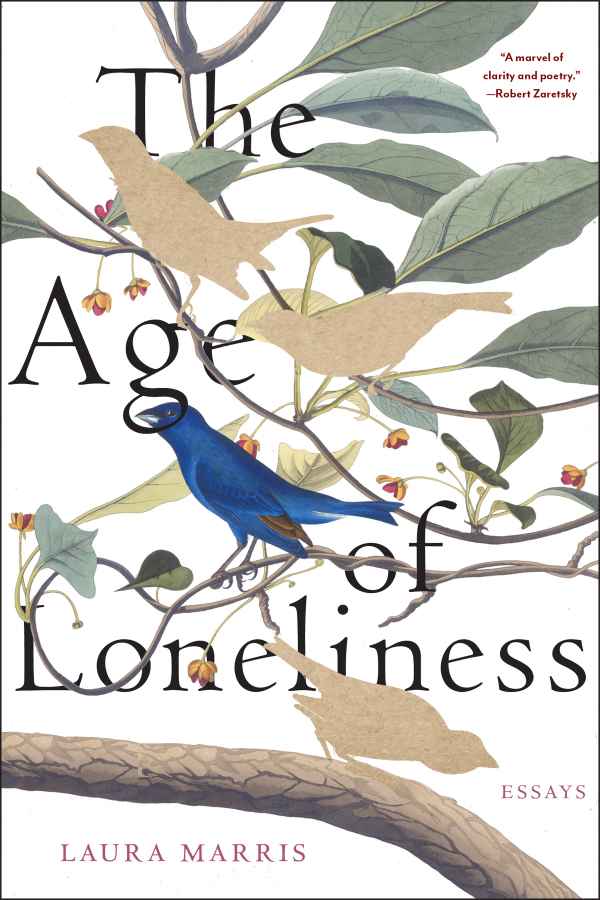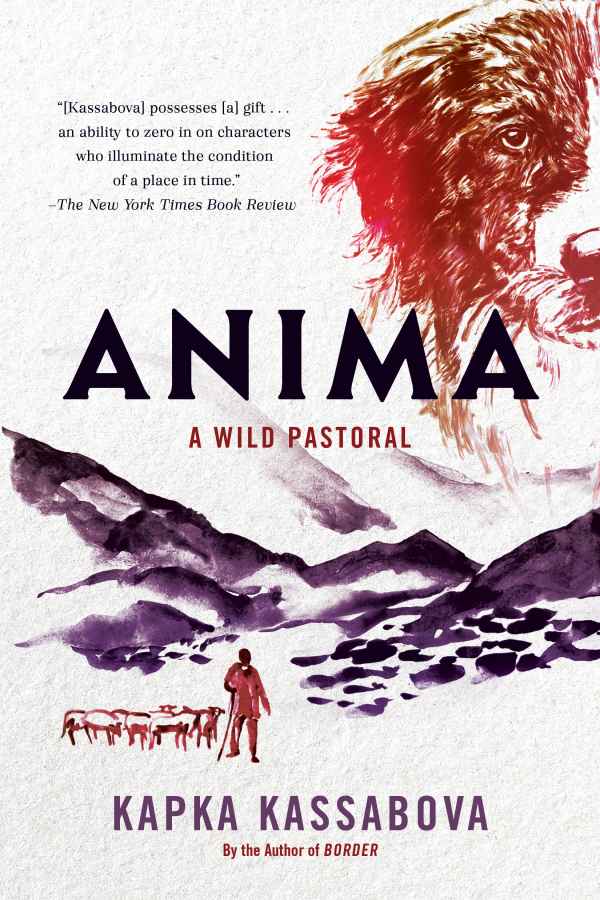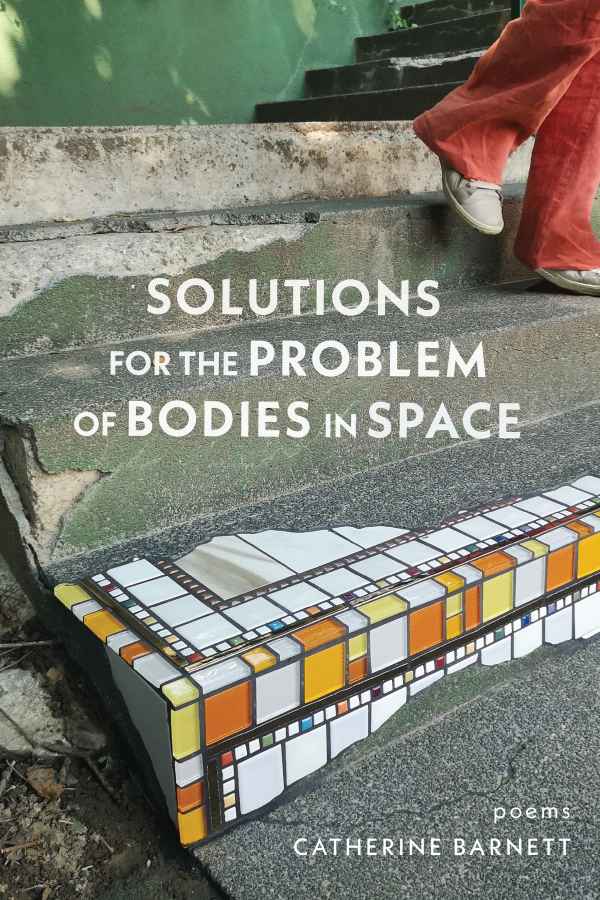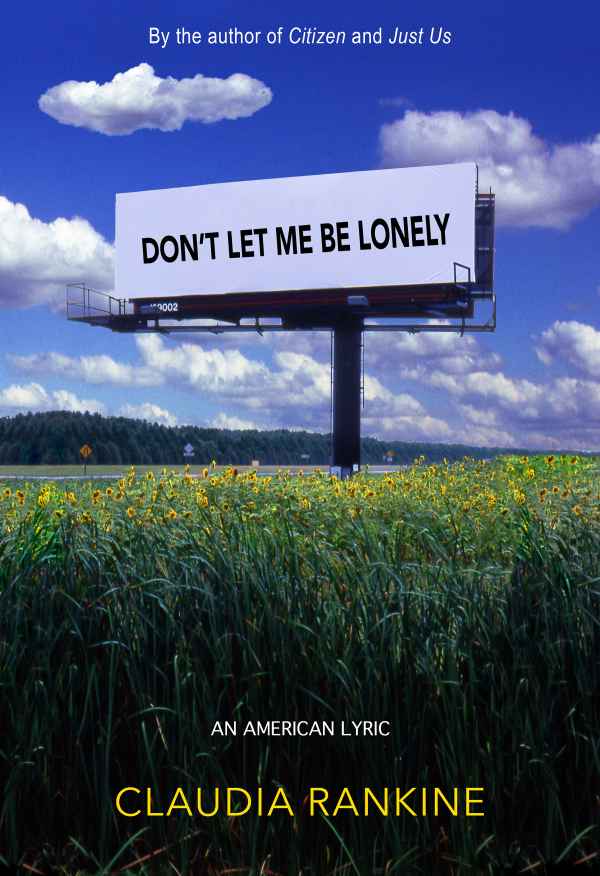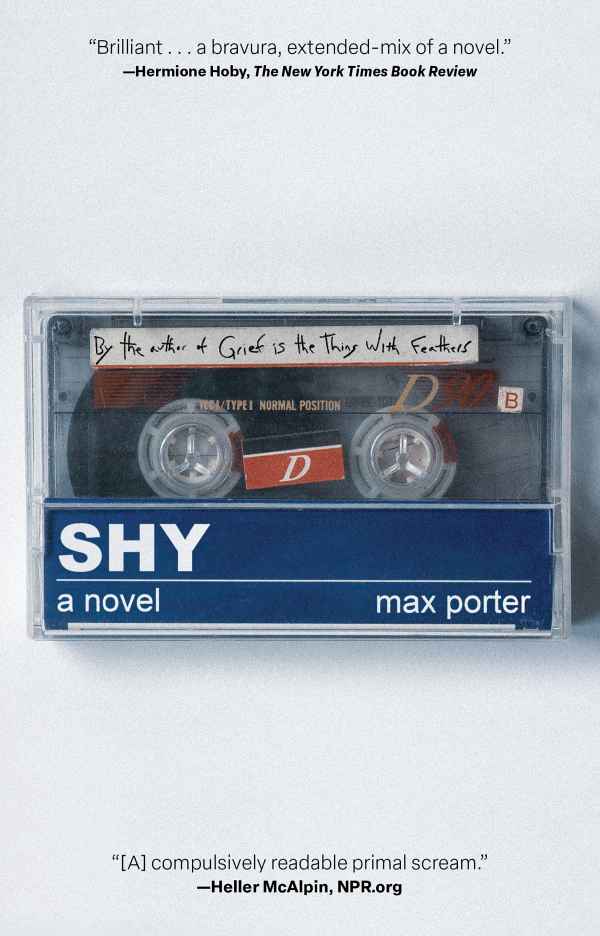Spring 2024 Catalog
Bluff
by Danez Smith
Publication date August 20, 2024 poetry
“Danez Smith is a powerhouse of poetry.”—Literary Hub
Written after two years of artistic silence, during which the world came to a halt due to the COVID-19 pandemic and Minneapolis became the epicenter of protest following the murder of George Floyd, Bluff is Danez Smith’s powerful reckoning with their role and responsibility as a poet and with their hometown of the Twin Cities. This is a book of awakening out of violence, guilt, shame, and critical pessimism to wonder and imagine how we can strive toward a new existence in a world that seems to be dissolving into desolate futures.
Smith brings a startling urgency to these poems, their questions demanding a new language, a deep self-scrutiny, and virtuosic textual shapes. A series of ars poetica gives way to “anti poetica” and “ars america” to implicate poetry’s collusions with unchecked capitalism. A photographic collage accrues across a sequence to make clear the consequences of America's acceptance of mass shootings. A brilliant long poem—part map, part annotation, part visual argument—offers the history of Saint Paul’s vibrant Rondo neighborhood before and after officials decided to run an interstate directly through it.
Bluff is a kind of manifesto about artistic resilience, even when time and will can seem fleeting, when the places we most love—those given and made—are burning. In this soaring collection, Smith turns to honesty, hope, rage, and imagination to envision futures that seem possible.
Danez Smith is the author of Don’t Call Us Dead, winner of the Forward Prize for Best Collection and a finalist for the National Book Award, and [insert] boy, winner of the Kate Tufts Discovery Award. They live in Minneapolis.
Bluff: Poems by Danez Smith
August 20, 2024
978-1-64445-298-1
Paperback $18.00
160 pages 7" x 9"
Brit. trans. audio, dram.: Graywolf Press 1st ser.: Author c/o Graywolf Press
Jellyfish Have No Ears
by Adèle Rosenfeld; translated from the French by Jeffrey Zuckerman
Publication date August 6, 2024 fiction
A deeply moving debut novel about the flaws of language, the fear of silence, and the power of imagination
Since she was little, Louise has been not quite hearing and not quite deaf—her life with this invisible disability has been one of in-betweenness. After an audiology test shows that almost all her hearing is gone, her doctor suggests getting a cochlear implant. The operation will be irreversible, making the decision all the more fraught. The technology would give Louise a new sense of hearing—but it would be at the expense of her natural hearing, which, for all its weakness, has shaped her unique relationship with the world, full of whispers and shadows.
Hearing, for Louise, is inseparable from reading other people’s lips. Through sight, she perceives words and strings them together like pearls to reconstruct a conversation. But when the string breaks, misunderstandings result and eccentric images fill her thoughts. As she weighs the prospect of surgery, fabulous characters begin to accompany her: a damaged soldier from the First World War, an irritable dog named Cirrus, and a whimsical botanist. This ethereal world, full of terror and beauty and off-kilter humor, keeps erupting into the equally chaotic reality of Louise’s life as she experiences a new relationship, suffers through her first job, and steadies herself with friends.
With Jellyfish Have No Ears, Adèle Rosenfeld shines an extraordinary light on the black hole of losing a sense and on the vibrancy that can arise to fill the void.
Adèle Rosenfeld lives in Paris where she runs writing workshops. Jellyfish Have No Ears was a finalist for the 2023 Prix Goncourt for a first novel.
Jeffrey Zuckerman is an award-winning translator of French writers, including Jean Genet, Hervé Guibert, and Ananda Devi. He lives in New York.
Jellyfish Have No Ears: A Novel by Adèle Rosenfeld; translated from the French by Jeffrey Zuckerman
August 6, 2024
978-1-64445-296-7
Paperback $17.00
192 pages 5.5" x 8.25"
Brit., audio: Graywolf Press Trans., 1st ser., dram.: Grasset
The Long Run
by Stacey D'Erasmo
Publication date July 9, 2024 nonfiction
The author of The Art of Intimacy asks eight legendary artists: What has sustained you in the long run?
How do I keep doing this—making art? Stacey D’Erasmo had been writing for twenty years and had published three novels when she asked herself this question. She was past the rush of her first books and wondering what to expect—how to stay alive in her vocation—in the decades ahead.
D’Erasmo began to interview older artists she admired to find out how they’d done it. She talked to Valda Setterfield about her sixty-year career that took her from the Merce Cunningham Dance Company to theatrical collaborations with her husband to roles in films. She talked to Samuel Delany about his vast oeuvre of books in many genres. She talked to Amy Sillman about working between painting and other media, and between abstraction and figuration. She talked to landscape architect Darrel Morrison, composer Tania Léon, actress Blair Brown, musician Steve Earle, and visual artist Cecilia Vicuña. She saw connections between them and to artists across time: Colette, David Bowie, Ruth Asawa. She found insights, too, about what has driven and thwarted and shaped her as a writer.
Instead of easy answers or a road map, The Long Run offers one practitioner’s conversations, anecdotes, confidences, and observations about sustaining a creative life. Along the way, it radically redefines artistic success—shifting the focus from novelty, output, and external recognition toward freedom, fluidity, resistance, community, resilience, and longevity.
Stacey D’Erasmo is the author of the novels Tea, A Seahorse Year, The Sky Below, Wonderland, and The Complicities, and the nonfiction book The Art of Intimacy. She is a professor of writing and publishing practices at Fordham University.
The Long Run: A Creative Inquiry by Stacey D'Erasmo
July 9, 2024
978-1-64445-292-9
Paperback $17.00
192 pages 5.5" x 8.25"
Brit., trans., 1st ser., audio, dram.: The Clegg Agency
The Age of Loneliness
by Laura Marris
Publication date August 6, 2024 nonfiction
A vital, intimate inquiry into the astonishing connections between personal and ecological loneliness
In this debut essay collection, Laura Marris reframes environmental degradation by setting aside the conventional, catastrophic framework of the Anthropocene in favor of that of the Eremocene, the age of loneliness, marked by the dramatic thinning of wildlife populations and by isolation between and among species. She asks: How do we add to archives of ecological memory? How can we notice and document what's missing in the landscapes closest to us?
Filled with equal parts alienation and wonder, each essay immerses readers in a different strange landscape of the Eremocene. Among them are the Buffalo airport with its snowy owls and the purgatories of commuter flights, layovers, and long-distance relationships; a life-size model city built solely for self-driving cars; the coasts of New England and the ever-evolving relationship between humans and horseshoe crabs; and the Connecticut woods Marris revisits for the first time after her father’s death, where she participates in the annual Christmas Bird Count and encounters presence and absence in turn.
Vivid, keenly observed, and driven by a lively and lyrical voice, The Age of Loneliness is a moving examination of the dangers of loneliness, the surprising histories of ecological loss, and the ways that community science—which relies on the embodied evidence of “ground truth”—can help us recognize, and maybe even recover, what we’ve learned to live without.
Laura Marris is a writer and translator. She is a MacDowell fellow and the recipient of a Silvers Grant for Work in Progress. She teaches creative writing at the University of Buffalo.
The Age of Loneliness by Laura Marris
August 6, 2024
978-1-64445-294-3
Paperback $18.00
208 pages 5.5" x 8.25"
Brit., trans., dram.: Janklow & Nesbit Associates 1st ser., audio: Graywolf Press
Anima
by Kapka Kassabova
Publication date August 20, 2024 nonfiction
A dramatic evocation of the intimate bond between people and animals in one of Europe’s last wild places
In Anima, Kapka Kassabova introduces us to the “pastiri” people—the shepherds struggling to hold on to an ancient way of life in which humans and animals exist in profound interdependence. Following her three previous books set in the Balkans, and with an increasing interest in the degraded state of our planet and culture, Kassabova reaches further into the spirit of place than she ever has before. In this extraordinary portrayal of pastoral life, she investigates the heroic efforts to sustain the oldest surviving breeds of our domesticated animals, and she shows us the epic, orchestrated activity of transhumance—the seasonal movement, on foot, of a vast herd of sheep, working in tandem with dogs. She also becomes more and more attuned to the isolation and sacrifices inherent in the lives shaped by this work.
Weaving together lyrical writing about place with a sweeping sense of the traumatic histories that have shaped this mountainous region of Bulgaria, Kassabova shows how environmental change and industrial capitalism are endangering older, sustainable ways of living, and by extension she reveals the limited nature of so much of modern life. But shining through Kassabova’s passionate, intimate response to the monoculture that is “Anthropos” is her indelible portrait of a circulating interdependence of people and animals that might point to a healthier way to live.
Kapka Kassabova is a writer of narrative nonfiction, poetry, and fiction. She grew up in Sofia, Bulgaria, and lives in the Scottish Highlands. She is the author of Elixir, To the Lake, and Border, a finalist for the National Book Critics Circle Award.
Anima: A Wild Pastoral by Kapka Kassabova
August 20, 2024
978-1-64445-300-1
Paperback $21.00
384 pages 5.5" x 8.25"
Not a River
by Selva Almada; translated from the Spanish by Annie McDermott
Publication date May 7, 2024 fiction
A novel that conjures a river thick and dark as ink, teeming with life, memory, and ghosts
It’s not a river, it’s this river.
A hot, motionless afternoon. Enero and El Negro are fishing with Tilo, their dead friend’s teenage son. After hours of struggling with a hooked stingray, Enero aims his revolver into the water and shoots it. They hang the ray’s enormous corpse from a tree at their campsite and let it go to rot, drawing the attention of some local islanders and igniting a long-simmering fury toward outsiders and their carelessness. It’s only the two sisters—the teenage nieces of one of the locals, Aguirre—with their hair black as cowbird feathers and giving off the scent of green grass, who are curious about the trio and invite them to a dance. But the girls are not quite as they seem. As night approaches and tensions rise, Enero and El Negro return to the charged memories of their friend who years ago drowned in this same river.
As uneasy and saturated as a prophetic dream, Not a River is another extraordinary novel by Selva Almada about masculinity, guilt, and irrepressible desire, written in a style that is spare and timeless.
Selva Almada is the author of Brickmakers, Dead Girls, and The Wind That Lays Waste. She is considered one of the most potent literary voices in Argentina and Latin America.
Not a River by Selva Almada; translated from the Spanish by Annie McDermott
May 7, 2024
978-1-64445-285-1
Paperback $16.00
104 pages 5.5" x 8.25"
Brit.: Charco Press 1st ser., audio: Graywolf Press Trans., dram.: Agencia Literaria CBQ, SL
Solutions for the Problem of Bodies in Space
by Catherine Barnett
Publication date May 7, 2024 poetry
Catherine Barnett's new poems move beautifully and unpredictably through loneliness, comedy, intellect, and love
The loneliness that collects in mirrors and faces—at bedside vigils and in city streets—quickens Catherine Barnett’s metaphysical poems, which are like speculative prescriptions for this common human experience. Here loneliness is filled with belonging, which is in turn filled with loneliness, each state suffused and emptied by the other. Barnett’s fourth collection is part manifesto, part how-to manual, part apologia: a guide to the homeopathic dangers and healing powers of an emotion so charged with eros, humor, and elusive beauty it becomes a companion both desired and eschewed, necessary and illuminating.
Solutions for the Problem of Bodies in Space is never far from grief or a comedy of bewilderment, inadequacy, hope. Entering Barnett’s world is a little like entering an electrically charged cloud, and the prospect of either falling or getting caught in a storm brings vertiginous and unpredictable pleasures. Bristling with uncanny intelligence, the poems are sometimes quiet elegies, sometimes meditations on art, love, and the failures of love that so often define love. Barnett might be called a realist—her style is radiantly exact—yet somehow she is a guide both into and out of the existential void. She has written a tender, dazzling collection of estrangement and intimacy.
Catherine Barnett is the author of three poetry collections, Human Hours, Into Perfect Spheres Such Holes Are Pierced and The Game of Boxes, winner of the James Laughlin Award of the Academy of American Poets. Her honors include a Whiting Award and a Guggenheim Fellowship. She is a member of the core faculty of New York University's Creative Writing Program, a Distinguished Lecturer at Hunter College, and an independent editor in New York City.
Solutions for the Problem of Bodies in Space by Catherine Barnett
May 7, 2024
978-1-64445-287-5
Paperback $17.00
96 pages 6" x 9"
Brit., trans., audio, dram: Graywolf Press 1st ser.: Author c/o Graywolf Press
Don't Let Me Be Lonely
by Claudia Rankine
Publication date July 9, 2024 nonfiction
A new edition of the first groundbreaking installment in Claudia Rankine’s American trilogy
A brilliant and unsparing examination of America in the early twenty-first century, Claudia Rankine’s Don’t Let Me Be Lonely invents a new genre to confront the particular loneliness and rapacious assault on selfhood that our media have inflicted upon our lives. Fusing the lyric, the essay, and the visual, Rankine negotiates the enduring anxieties of medicated depression, race riots, divisive elections, terrorist attacks, and ongoing wars—doom scrolling through the daily news feeds that keep us glued to our screens and that have come to define our age.
First published in 2004, Don’t Let Me Be Lonely is a hauntingly prescient work, one that has secured a permanent place in American literature. This new edition is presented in full color with updated visuals and text, including a new preface by the author, and matches the composition of Rankine’s best-selling and award-winning Citizen and Just Us as the first book in her acclaimed American trilogy.
Don’t Let Me Be Lonely is a crucial guide to surviving a fractured and fracturing American consciousness—a book of rare and vital honesty, complexity, and presence.
Claudia Rankine is the author of Just Us: An American Conversation, Citizen: An American Lyric and four previous books, including Don’t Let Me Be Lonely: An American Lyric. Her work has appeared recently in the Guardian, the New York Times Book Review, the New York Times Magazine, and the Washington Post. She is a chancellor of the Academy of American Poets, the winner of the 2014 Jackson Poetry Prize, and a contributing editor of Poets & Writers. She received a MacArthur Fellowship in 2016. Rankine teaches at New York University.
Don't Let Me Be Lonely: An American Lyric by Claudia Rankine
July 9, 2024
978-1-64445-255-4
Paperback $20.00
176 pages 5.5" x 8"
Brit.: Penguin Books UK Trans., dram.: Graywolf Press Audio: Recorded Books
Shy
by Max Porter
Publication date June 4, 2024 fiction
New in paperback, a novel by “contemporary fiction’s bard of ugly beauty and exultant despair” (The New Yorker)
This is the story of a few strange hours in the life of a troubled teenage boy.
You mustn’t do that to yourself Shy. You mustn’t hurt yourself like that.
He is wandering into the night listening to the voices in his head: his teachers, his parents, the people he has hurt and the people who are trying to love him.
Got your special meds, nutcase?
He is escaping Last Chance, a home for “very disturbed young men,” and walking into the haunted space between his night terrors, his past, and the heavy question of his future.
The night is huge and it hurts.
Max Porter is the author of Lanny, which was longlisted for the Booker Prize, Grief Is the Thing with Feathers, winner of the International Dylan Thomas Prize, and The Death of Francis Bacon. He lives in Bath with his family.
Shy by Max Porter
June 4, 2024
978-1-64445-289-9
Paperback $16.00
136 pages 5" x 7.75"
Brit.: Faber & Faber Ltd U.K. Trans., dram.: Aitken Alexander Associates Ltd 1st ser., audio: Graywolf Press
